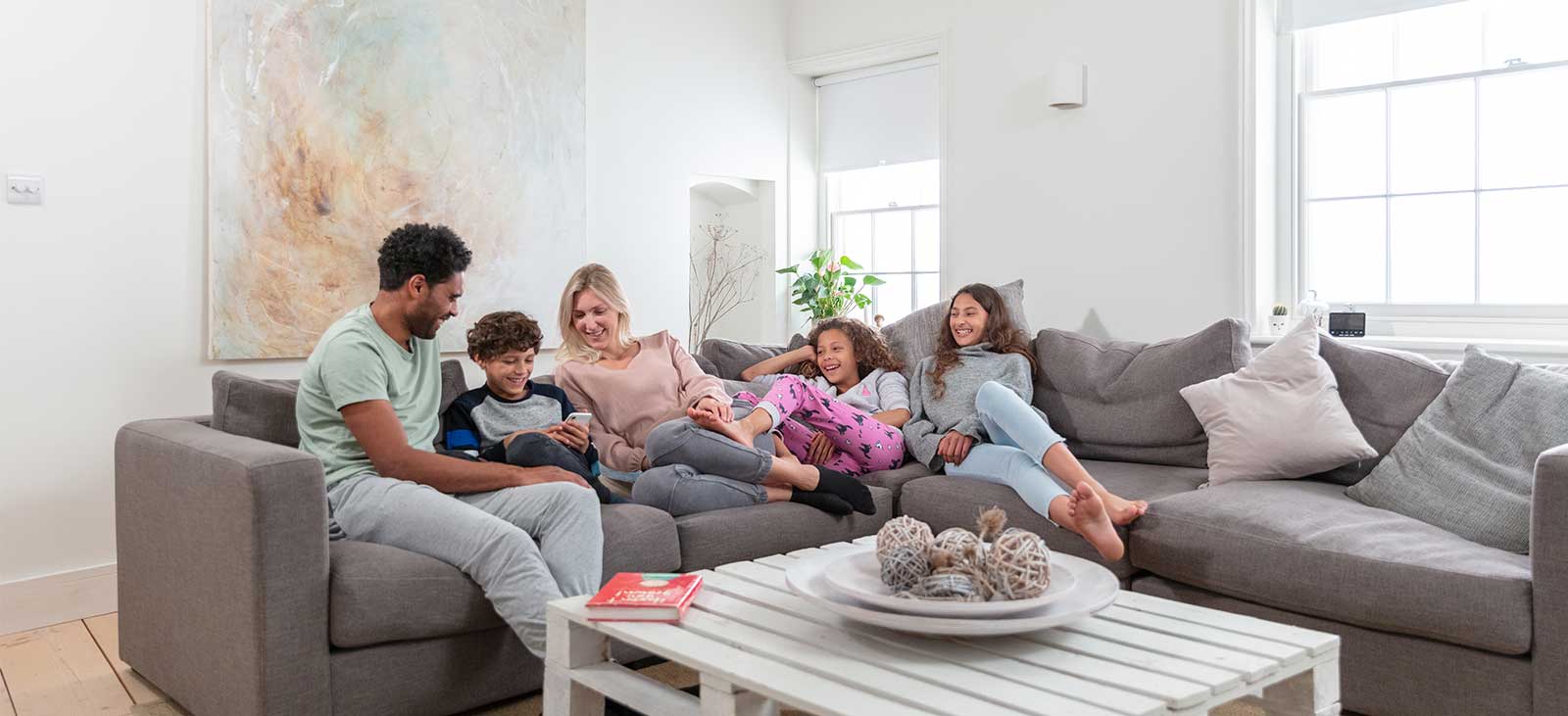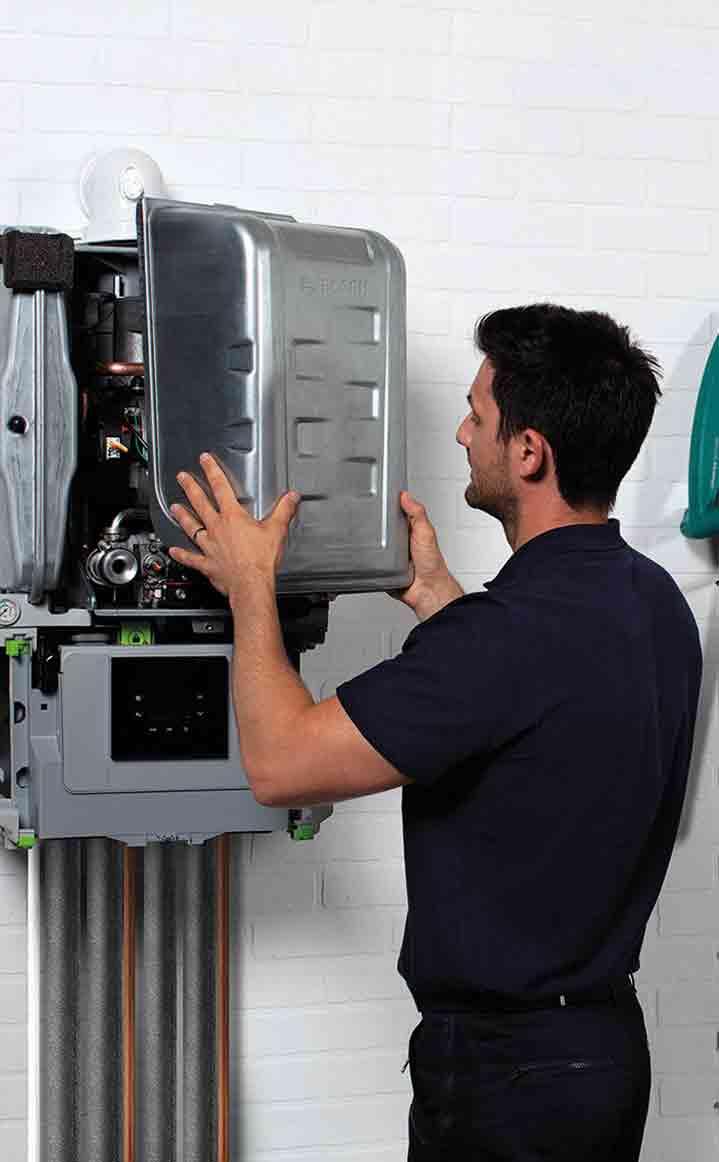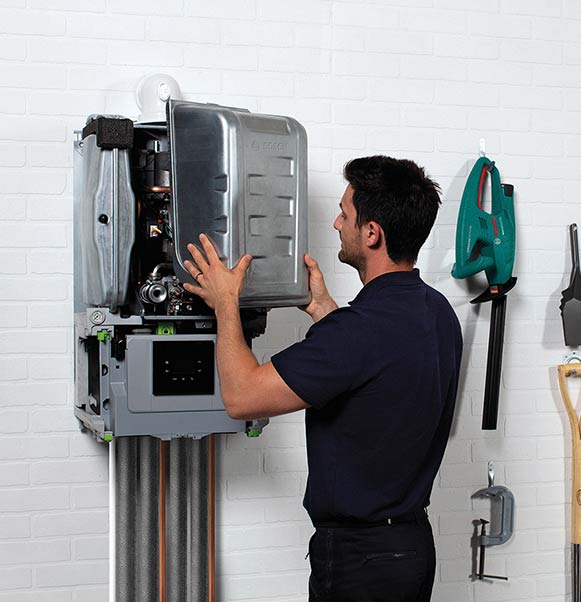

The ideal room temperature for your home and how to maintain it


The ideal room temperature for your home and how to maintain it
Too hot, too cold… Getting the temperature right in your home can be tricky, especially when everyone has a different preferred room temperature.
The temperature of the rooms in your home can affect your comfort, health, energy bills and the environment – but thankfully there are easy ways to save energy, reduce your energy costs and lower your carbon footprint, without compromising on your comfort.
Read on to discover how to maintain the ideal room temperature and stay on track of your energy use when heating your home.
What is room temperature?
Room temperature is determined by how warm or cold the air in a room is and can be affected by the humidity. But we all experience temperature differently and it’s highly likely that even within your own household you’ll disagree over what the perfect temperature is. It can be a minefield trying to achieve the best room temperature to suit everyone in your household.
In fact, even your clothing and what activity you’re doing can impact how you experience the temperature of a room.
Obviously, you’re likely to be warmer when wearing a thick, woolly jumper than shorts and a T-shirt. And you may need to turn the thermostat up or down to suit different activities too – colder for cooking, but then warmer for evenings in front of the television.


What temperature should my home be?
The optimum home temperature in the UK is between 18°C to 21°C1, and heating your home above this temperature could have a negative impact on the environment and your energy bills.
And when it comes to heating different rooms, it’s not one size fits all. You might choose to heat your kitchen to a lower temperature (around 18oC) as your oven or hob will create extra heat while you’re cooking. Whereas, you might feel more comfortable having your living room set closer to 21oC to create a cosy environment when sitting on the sofa.
Just remember, if anyone in your household is over the age of 65, the minimum temperature you should set your thermostat to is 18oC2 and make sure you also do this if someone is poorly or has existing health conditions. And if you have a baby the NHS recommends keeping the room temperature about 18oC when they’re sleeping3.
How does the ideal room temperature change in winter and summer?
Whilst the ideal room temperature stays the same year-round, our focus on how to achieve this temperature changes. During the summer months, you’ll likely be trying to keep your house cool – by using fans or closing your curtains during the day, for example.
In winter, it’s about getting your home ready for the cold weather, by for example checking your boiler is working as efficiently as possible or considering draught-proofing your home, and continuing to stay warm in your home throughout the winter months.


How can smart technology help me control my heating?
You can easily manage and control your heating and hot water with a smart thermostat, like Bosch EasyCare. Using your smartphone, you can see how warm your home is, check if your heating is on and even turn it on or off from wherever you are. It even checks the weather forecast to heat your home more efficiently, allowing the sun to lend a helping hand on warmer days.
And if you want to set different temperatures and heating schedules for different rooms, consider adding smart radiator thermostats to control your radiators if you have central heating. You can use your smartphone to heat your rooms on an individual basis, giving you multi-room control.
Do I need to heat my home when I’m not there?
While it might be tempting to leave the heating on all day so your home is warm when you return, you’re wasting both energy and money heating an empty home. Instead set a timer for your heating to come on just before you get home – you’ll return to a nice, warm home but won’t be paying more than you need to.
And if you’re going to be home earlier than expected, with the Bosch EasyControl smart thermostat you can turn the heating on from wherever you are with your smartphone.
But if you’re going to be away for longer, there are some extra steps that you may need to take – especially during the winter months to protect your pipes from freezing and bursting.
How to sustainably heat your home and save money on your energy bills
Heating and hot water make up more than half of an average UK household’s energy bill4 so it’s important to keep an eye on your energy use when heating your home. But monitoring your energy use isn’t just good for looking after your bills, it can also help you to look after the environment too.
Here are a few things you can do to live sustainably and economically while still staying warm and healthy in your home.
- Draught-proofing: For a quick and easy way to use less heat around your home and therefore spend less on your heating bill, use low-cost draught excluders to cover any cold spots under doors or around windows.
- Make sure your home is well insulated: Cavity wall Insulation not only prevents heat loss to keep your home warm in winter, but it also helps to keep your home cool in summer. You could save up to £2855 a year on heating alone – meaning you'll be spending less money and using less energy on achieving your perfect temperature.
- Check your boiler: If your boiler is more than 10 years old, getting a new, efficient boiler will help you to avoid wasting energy and save money in the long run. And make sure to get your boiler serviced every year to ensure it’s working safely and efficiently.
- Track your energy use with a smart meter: You can easily see how much energy you’ve used in near real-time, how much it’s costing you in pounds and pence and even your CO2 emissions – helping you to better understand your energy use and the small changes you could make to save energy, reduce your bills and lower your impact on the environment.
- Simple habits like keeping windows and doors closed: This is an easy way to reduce your energy waste and therefore save money – instead of trying to heat your entire home, or even worse the outdoors, simply focus on heating the rooms you’re actually using.
1. Energy Saving Trust: How to control your central heating system
2. NHS: How to stay well in winter
3. NHS: Reduce the risk of sudden infant death syndrome (SIDS)
4. Energy Saving Trust: Heating and hot water
5. Savings information is provided from the Energy Saving Trust website and based on an average semi-detached household. Savings will vary depending on the size and thermal performance of your home. Figures are based on fuel prices as of April 2022.


Our blog
Read our latest blogs to discover how E.ON is leading the energy transition through smart and sustainable solutions.


Sustainable homes
Find out the many ways in which you can create a more sustainable home and reduce your carbon footprint.


Replacement boilers
Has your boiler seen better days? Arrange a boiler replacement now.
